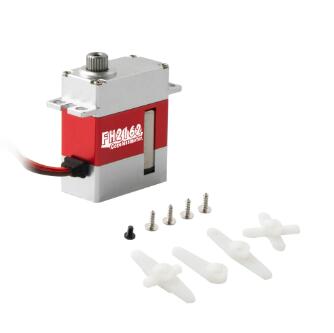The Benefits of Closed-Loop Control Systems in Servo Technology
2024-08-07
Introduction
Servo systems are integral to numerous industries where precise control of motion and positioning is critical. Closed-loop control systems, in particular, play a pivotal role in enhancing the performance and reliability of servo technologies. This blog explores the key advantages of closed-loop control systems in servo applications, shedding light on why they are preferred in demanding industrial environments.
1. Superior Accuracy and Precision
Closed-loop control systems enable servo motors to achieve unparalleled accuracy and precision in motion control. By continuously comparing actual position or velocity feedback with the desired setpoint, the system can make precise adjustments to minimize error. This capability is essential for applications requiring exact positioning, such as semiconductor manufacturing, medical devices, and precision machining.
2. Enhanced Response to Dynamic Loads
One of the significant advantages of closed-loop control is its ability to respond quickly to dynamic changes in load or operating conditions. Servo systems can adjust torque and speed in real time based on feedback signals, ensuring consistent performance even when faced with sudden changes in workload or external disturbances. This responsiveness improves overall system stability and reliability.
3. Reduced Settling Time and Improved Efficiency
Closed-loop control minimizes settling time—the time it takes for the system to stabilize at the desired position or speed. By optimizing control inputs through feedback, servo systems can achieve faster response times and smoother transitions between operating states. This efficiency not only enhances productivity but also extends the lifespan of mechanical components by reducing wear and tear.
4. Mitigation of Mechanical Wear and Maintenance Costs
The precise control provided by closed-loop systems helps mitigate mechanical wear on servo components, such as gears and bearings. By minimizing unnecessary movements and optimizing operational parameters, closed-loop control reduces maintenance requirements and extends the operational lifespan of servo systems. This results in lower overall maintenance costs and improved return on investment (ROI) for industrial operators.
5. Adaptive Performance Across Varied Conditions
Closed-loop control systems excel in adapting to diverse operating conditions and environments. They can compensate for factors like temperature variations, load fluctuations, and external disturbances, maintaining consistent performance levels over time. This adaptability ensures reliable operation in challenging industrial settings where environmental factors can impact system performance.
6. Real-Time Monitoring and Diagnostic Capabilities
Closed-loop servo systems facilitate real-time monitoring of performance metrics and diagnostics. Operators can access feedback data to identify potential issues, monitor system health, and implement preventive maintenance measures proactively. This proactive approach reduces downtime, enhances operational efficiency, and improves overall equipment effectiveness (OEE).
Conclusion
Closed-loop control systems represent the pinnacle of servo technology, offering unmatched precision, responsiveness, and reliability in motion control applications. Whether in manufacturing automation, robotics, or precision engineering, the benefits of closed-loop servo systems make them indispensable for achieving high-performance standards and meeting the demands of modern industrial environments.



